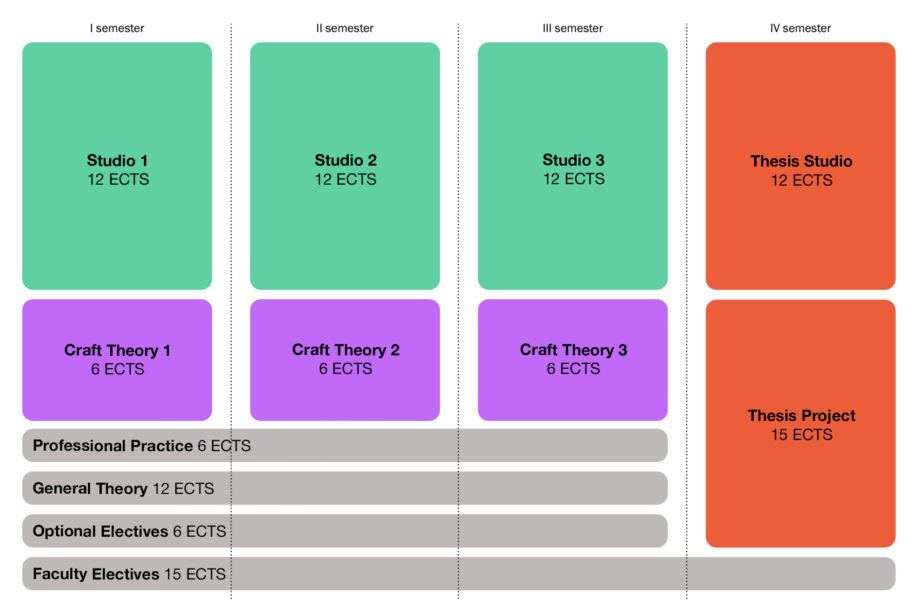Programme
During the two-year, full-time programme, students participate in various seminars, lectures, workshops, group critiques, and student-led projects. Four main studios – Terraforming, Migrated Bodies, Floating Identities and Material Respondance – are designed to advance autonomous practices, supported by individual tutoring and a wide range of technical competence in accordance with a Personal Study Plan.
Each semester, students are paired with a studio advisor and gain access to a specific workspace. The program is unique due to our faculty members’ diverse backgrounds and team teaching structure. Lectors include renowned international guest artists and professionals. This curriculum functions in dual languages, both English and Estonian.

As part of the studies, students may engage in research or teaching assistantships or conduct an internship outside EKA.
Curriculum Overview
Studios
In each Studio across four semesters, students focus on central principles, formats, processes and methods of artistic research, and their application in the development of autonomous creative practice and work processes. While the focus is on advancing individual skills and expanding the methodologies of creative practice and work processes, students learn to contextualize their work as research with relevant references, argumentations and source materials. Overall, Studios support the development of the author’s position and increase self-confidence in creating and presenting creative outcomes in different formats and contexts.
In addition, an important aspect of the learning consists of collective experiences: for example, the first semester begins with a collective week-long field trip into the wild, exploring the vernacular context, mapping and gathering materials, engaging with low-tech processes and tools – to shape an encouraging group dynamic and reflective work environment. Similar projects are coordinated throughout the studies, including group exhibitions and public interventions. Spontaneous student-driven activities are encouraged.
Craft Theory
Craft Theory lectures support the main Studios while bringing under discussion the most critical contemporary concepts, theories and topics related to craft, design and material research. Students are encouraged to integrate theory with practice while applying critical thinking and analytical skills – the use of correct terminology, reference system, documentation methods in research and experience-based approaches. Through reading and writing texts, reimagining and rethinking the role of making, students contribute to the development of material culture theories and research.
Professional Practice
Students get an opportunity to relate the knowledge acquired during their studies and gain direct experience for understanding the specifics of different types of professional practices. There are three settings: 1) assisting research projects in a lab environment at EKA or by contributing to doctoral investigations; 2) teaching alongside the faculty or proposing an optional elective course; 3) conducting an external studio-based internship.
General Studies
Alongside the Craft Studies, students can select various courses: general theory, faculty electives and optional subjects. The choice of subjects provides the students with an opportunity to plan a program according to their own interests and needs.
The general theory courses include e.g. Philosophy and Critical Thinking, Cultural Theory, History of Ideas, Academic Writing, Visual Literacy, Estonian Culture at the Crossroads and Creative Industries. Other optional courses vary annually, involving pedagogy, artistic research methodologies, semiotics, art activism, gender studies etc.
Final Thesis
The two-year studies are finalized with a substantial independent creative project demonstrating students’ ability to position, contextualize and reflect on the artistic research process and professional beliefs. Practice-led outcomes are accompanied by a written component. The manifestation of an individual unique vision leads to a public exhibition, intervention, design solution or an alternative presentation as part of the formal Thesis Defence.
